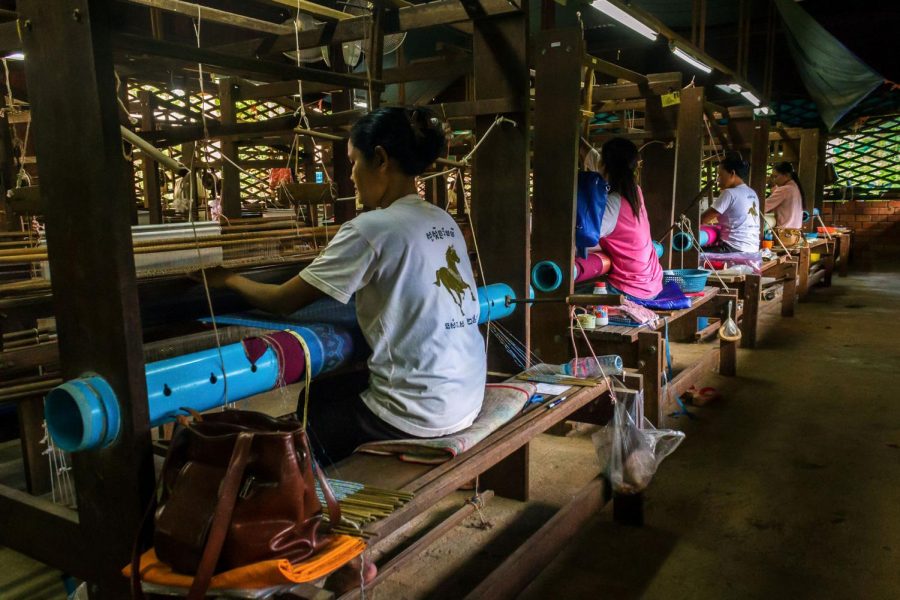Opinion | Developing governments must end sweatshops
Photo Courtesy of Jeff Cagle/Dreamstime/TNS
Workers weave silk at a factory in Siem Reap, Cambodia on Aug. 24, 2015.
April 20, 2020
Sweatshops are the archetype of worker mistreatment in the developing world. They counteract the modern belief that workers of any stripe are entitled to fair compensation, safe working conditions and dignity on the jobsite.
Those upset by the apparent exploitation will look for someone to blame. Are western companies, who purchase supply from sweatshops and help proliferate them, complicit in the mistreatment of its workers?
It’s complicated. Companies respond to stockholders. Therefore, companies like Apple and Nike — commonly accused of sustaining sweatshops — will always invest where it will be cheapest in order to maximize returns for their investors. It’s their job. They’re maximizing profit within the rules of the game. But what if the rules changed?
Let’s postulate that developing countries institute stricter wage laws, better jobsite safety standards and acceptance of organized labor contracts. Now, the companies that purchase supply from developing countries are more confined. They’re still going to pursue the cheapest option, but that option is no longer so terrible. Even if, after the adjustment, wages for developing world workers are still lower than American workers, the lower cost of living overseas would help balance that gap out.
Ultimately, we’ll run into a problem for American consumers. If production becomes less cheap, prices at the checkout counter have to go up. No more $5 t-shirts in the clearance bin at Walmart. But would you be willing to spend a little more per clothing item if you knew your clothes were ethically produced? If standards go up, prices go up, but so does quality.
Get The Daily Illini in your inbox!
When the price of clothing increases, the law of demand tells us that demand for clothes will decrease. This lowered demand means factories in the developing world won’t have to generate cargo ships full of cheaply made products. They can instead focus their efforts on quality, not quantity. The same goes for the consumer. A wardrobe of slightly fewer, higher quality products sounds like a better deal to me.
How do we know quality will go up? Good news for skeptics: there’s historical precedent. Factory conditions in the U.S. and Britain were horrific during the industrial revolution (fingers getting caught in the sewing machines, mice running around the workfloor, butchers falling into the sausage vats), arguably worse than the conditions in sweatshops today. The stark conflict between workers and employers was so serious, it culminated in battle (literally, with armed militias and days of raining gunfire) at the Homestead Strike in 1892.
In the end though, labor laws won out. The minimum wage was established, the weekend was solidified and collective bargaining was recognized. Before the Nixon administration opened up China to become the world’s source of cheap labor, American products were the best in the world, and factory jobs were a guarantee into the middle class.
Would the measures listed above be enough to bring factory workers in developing countries up to the living standards of factory workers in America? Not overnight. But over time, modernizing the unskilled labor industry will raise the living standard by giving more purchasing power to workers.
It’s true that we might sacrifice some economic efficiency for the worker welfare component. But as a society, we’re willing to do that up to a certain point. Where we draw that line is up to healthy debate. In the meantime, codifying basic protections to shield workers from mistreatment is a place to start because it’s a sign of a vibrant economy.
Mark is a junior in ACES.







